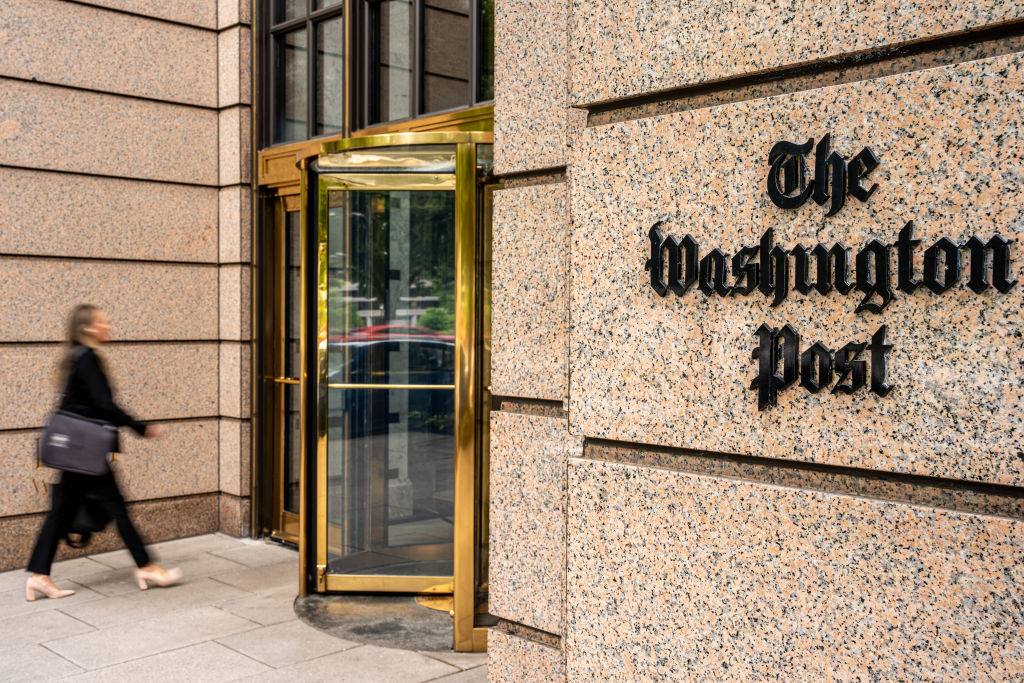The Aspen Institute’s Commission on Information Disorder will soon release their interim report with recommendations for how the United States should respond to the ‘modern-day crisis of faith in key institutions.’ But the partisan nature of the commissioners on the board brings the report’s credibility into question.
The commission’s stated goal is to ‘identify and prioritize the most critical sources and causes of information disorder and deliver a set of short-term actions and longer-term goals to help government, the private sector and civil society respond to this modern-day crisis of faith in key institutions’.
Kathryn Murdoch, a commissioner on the board and donor to the institute, has funded partisan political action committees associated with the spreading of disinformation. FEC records indicate that Murdoch donated $500,000 to PACRONYM, the Super PAC arm of the social advocacy group ACRONYM. The latter funds and manages Courier Newsroom, ‘a network of websites emulating progressive local news outlets,’ according to Open Secrets. Courier has faced criticism for exploiting the financial erosion of local news outlets in order to spread ‘hyperlocal partisan propaganda’.
Courier claims to be independent of ACRONYM with separate investors — but a 2019 tax return obtained by Open Secrets shows ACRONYM as the complete owner of the news service.
PACRONYM spent over $5 million on digital advertising attacking then-president Donald Trump for his response to the pandemic, according to the Washington Post. Murdoch and her husband James spent over $100 million in the last election cycle towards Democratic organizations seeking to oust Trump, as The Spectator previously reported.
Another member of the Aspen Institute’s disinformation commission is Will Hurd, a former CIA officer and US representative for Texas’s 23rd congressional district. Hurd, a self-described centrist, was a frequent opponent of Trump while in office for his criticisms of US intelligence services and their handling of Russian interference in the 2016 election.
In 2018, Hurd claimed Trump had played into Vladimir Putin’s hands by not backing US intelligence conclusions that Russia had hacked the DNC. ‘Over the course of my career as an undercover officer in the CIA, I saw Russian intelligence manipulate many people,’ the then-Texas congressman wrote in a New York Times op-ed. ‘I never thought I would see the day when an American president would be one of them.’
Prince Harry, a more recent commission member, joined the Aspen Institute earlier this year after voicing concern about an ‘avalanche of misinformation’ on the internet. In May the Duke of Sussex told the Armchair Expert podcast: ‘I’ve got so much I want to say about the First Amendment as I sort of understand it, but it is bonkers.’
Another board member is journalist Katie Couric who had to apologize for misquoting and editing a gun owner’s comments in 2016.
While the Aspen Institute has shown no interest in removing these commissioners, Terry Schilling, president of the social conservative non-profit American Principles Project, called for their resignations earlier this week in a letter obtained by The Spectator.
‘For any study on disinformation to be credible, it must take a non-partisan approach which reviews the spread of disinformation from all political stripes and causes,’ Schilling wrote in a letter to the institute’s president Daniel Porterfield on Tuesday. ‘Early indications leave us skeptical that the commission can meet this test. By engaging with known partisans, the commission risks only inflaming an already charged issue.’
‘I strongly encourage you to dismiss Ms Murdoch and the other commissioners mentioned and replace them with individuals from a truly diverse set of backgrounds, experiences and qualifications. Doing so will allow the Aspen Institute to fulfill this commission’s laudable goal.’
Several podcasts and online resources published by the institute describe a pipeline of disinformation between right-wing media and Trump supporters. In a June 10 episode of Aspen Digital’s Disinfo Discussions, Dispatch co-founder Stephen Hayes claimed ‘fringe’ elements of conservative media help spread disinformation due to a lack of journalistic ethics. Hayes, a devout neoconservative, made a name for himself in the early 2000s after he perpetuated the false claim that Saddam Hussein’s regime had a functioning relationship with al-Qaeda.
The Aspen Institute did not respond to multiple requests for comment.

























